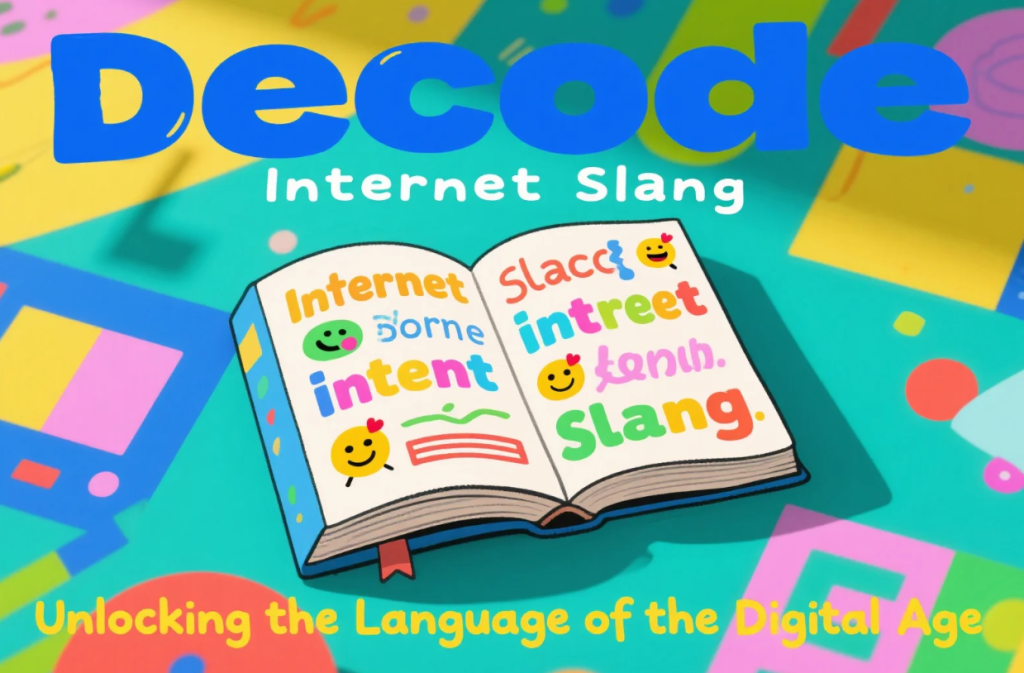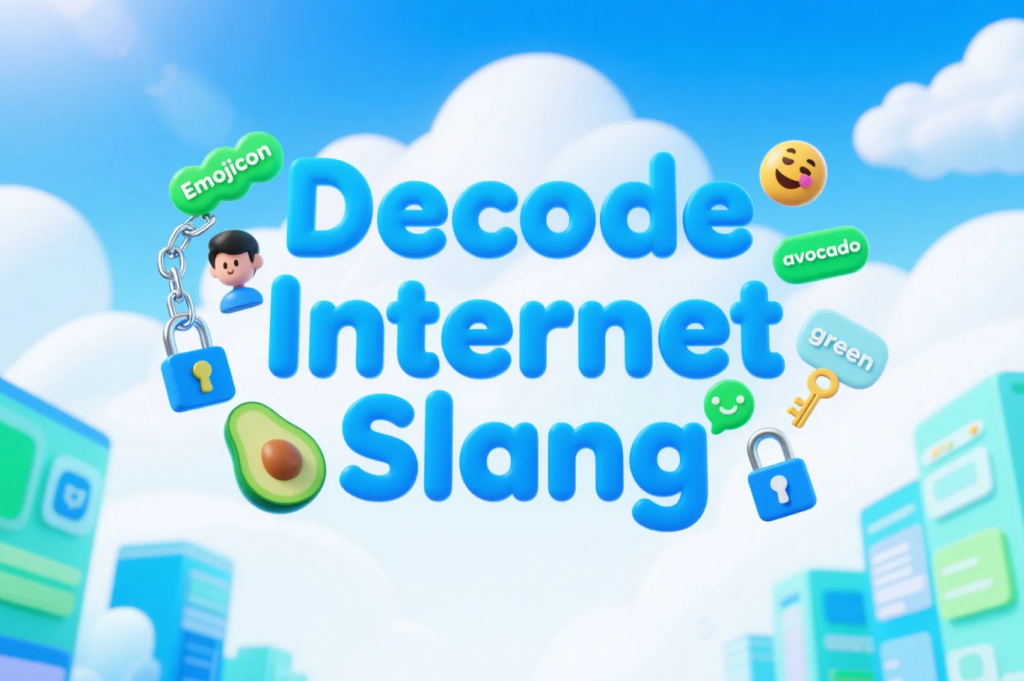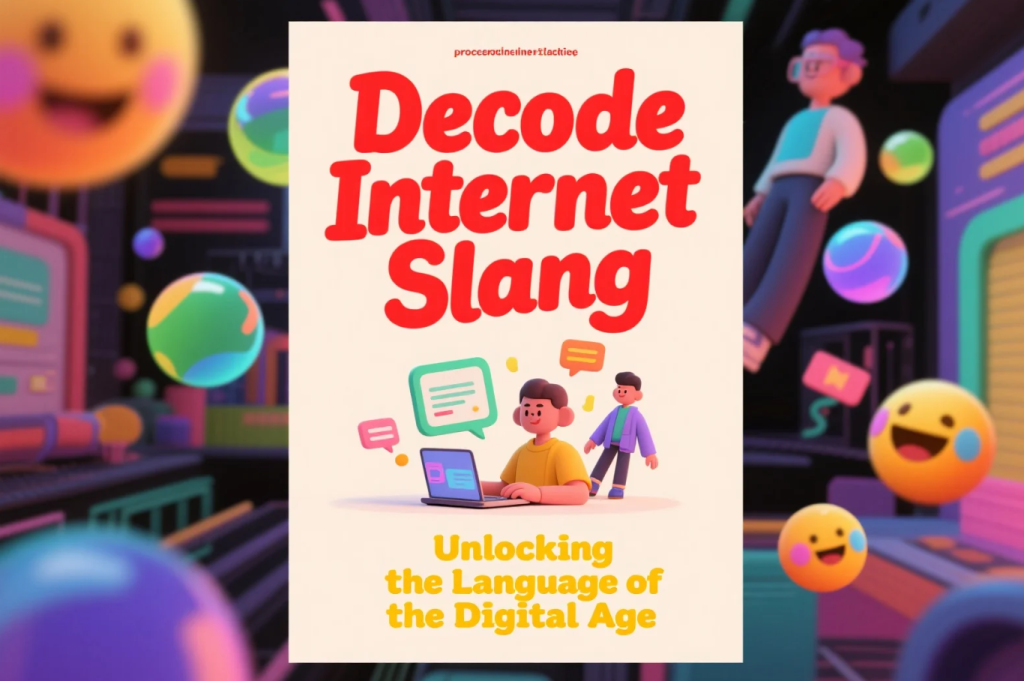In today’s hyper-connected world, internet slang has become a universal language bridging generations and cultures. From texting to social media, understanding these digital expressions is essential not only to keep up with conversations but also to engage meaningfully online. This article will decode the most popular internet slang terms, explore their origins, and provide tips to use them appropriately. Whether you’re a newbie or looking to sharpen your online communication skills, this guide has you covered.
What is Internet Slang and Why Does It Matter?
Internet slang refers to informal language created and popularized online. It often includes abbreviations, acronyms, emojis, and new words that convey meaning quickly and casually. This language evolves rapidly, shaped by memes, social media trends, and cultural phenomena.
Why should you care? For starters:
- Faster Communication: Internet slang condenses complex ideas into short, catchy expressions.
- Cultural Insight: Understanding slang provides clues about online communities and generational mindsets.
- Social Connection: Using the right slang can help you fit in or stand out in digital conversations.
- Professional Relevance: Even brands and businesses leverage slang to connect with younger audiences authentically.
The Origins of Popular Internet Slang
Many internet slang terms have fascinating histories rooted in gaming, texting, and early internet forums.
- LOL (Laugh Out Loud): Emerged in the 1980s among online chat rooms as a way to express amusement quickly.
- BRB (Be Right Back): Originated from instant messaging platforms, signaling a temporary absence.
- Ghosting: Derived from dating culture to describe suddenly cutting off communication without explanation.
- FOMO (Fear Of Missing Out): Popularized in social media to describe anxiety about missing experiences shared online.
- Salty: Borrowed from gaming communities to describe someone annoyed or bitter.
Knowing these backgrounds helps you grasp the nuance behind the words, preventing misunderstandings.
Common Internet Slang and Their Meanings
Here’s a curated list of widely used internet slang terms, broken down by category:
1. Acronyms and Abbreviations
- IMO/IMHO: In my opinion / In my humble opinion
- TL;DR: Too long; didn’t read (summary of long text)
- IDK: I don’t know
- SMH: Shaking my head (expressing disbelief or disappointment)
- BTW: By the way
2. Expressions and Phrases
- Tea: Gossip or interesting news
- Ship: Support a romantic relationship (e.g., “I ship them”)
- Flex: Show off or brag
- Mood: Relatable feeling or vibe
3. Emotional Reactions and Memes
- Stan: To be an obsessive fan (originates from Eminem’s song “Stan”)
- Yeet: To throw something with force or express excitement
- Sus: Suspicious or untrustworthy (from the game Among Us)
- Clap back: A sharp or witty response to criticism
4. Internet Culture References
- Karen: A pejorative term for an entitled or demanding person, often middle-aged woman
- Vibe check: An assessment of the general mood or energy of a situation or person
- Cancel culture: Collective withdrawal of support for public figures after problematic actions

How to Use Internet Slang Effectively
Using internet slang can enrich your online interactions if done right. Here are some best practices:
1. Know Your Audience
Slang may resonate with younger people or specific communities but confuse others. For professional or formal contexts, keep it minimal.
2. Avoid Overuse
Too many acronyms or trendy words can make your message hard to read or seem insincere.
3. Stay Updated
Slang evolves fast. Following relevant social media channels, memes, or even online dictionaries like Urban Dictionary can help you keep pace.
4. Be Authentic
Only use slang terms you understand fully. Misusing slang can backfire and make you seem out of touch.

The Psychological Impact of Internet Slang
Internet slang isn’t just fun chatter—it affects how people connect and perceive each other.
- Building Identity: Using slang helps individuals align with peer groups, fostering belonging.
- Expressing Emotion: Slang often conveys humor, sarcasm, or intensity better than standard language.
- Cognitive Efficiency: Short forms reduce cognitive load, speeding up communication.
However, reliance on slang might create barriers for those unfamiliar with the terms, causing exclusion or misunderstandings.
The Future of Internet Slang
With AI, globalization, and digital innovations accelerating communication, internet slang will continue evolving. Emerging trends include:
- Emoji and GIF integration: Visual expressions replacing words.
- Cross-language slang: Hybrid terms mixing English with other languages.
- Voice and video slang: New ways to express digital shorthand via audio or visual cues.
Staying fluent in internet slang means embracing a fluid, creative language landscape.
Embrace the Language of the Web
Internet slang is more than just casual chatter — it’s a dynamic form of digital expression that shapes our conversations, culture, and even identity. By decoding this language, you unlock new ways to connect, understand, and participate in online communities. Whether you use LOL, stan your favorite celebrity, or call out a “sus” situation, internet slang is here to stay, reflecting the ever-changing pulse of the digital age.


